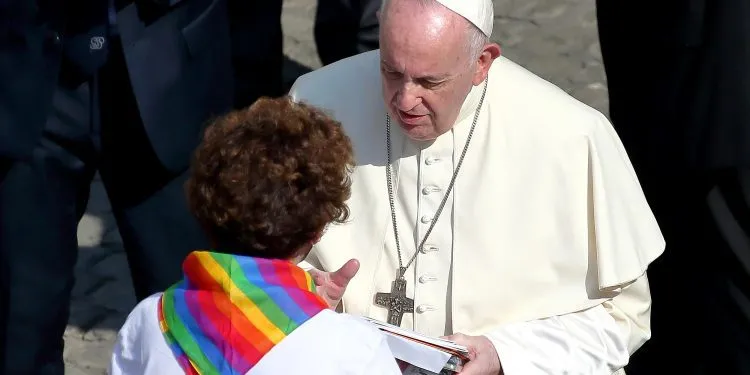VATICAN CITY, — The Vatican has released a doctrinal declaration titled “Fiducia supplicans,” signalling a shift in pastoral approach towards couples in irregular situations, including same-sex couples. The declaration, which Pope Francis has approved, allows for the possibility of blessing such couples without endorsing or ritualizing their unions.
The Dicastery for the Doctrine of the Faith’s declaration upholds the established view on marriage while emphasizing the value of pastoral care and transparency. The document clarifies that the doctrinal position on marriage remains unchanged, and the blessing is not to be interpreted as approval of the union.
“When two people request a blessing, even if their situation as a couple is ‘irregular,’ it will be possible for the ordained minister to consent,” the declaration states. However, it emphasises that the pastoral gesture should avoid any semblance of a marriage rite.
Cardinal Victor Fernandez, the prefect introducing the declaration, highlights its focus on the pastoral meaning of blessings. The document, rooted in the pastoral vision of Pope Francis, acknowledges a development in understanding blessings and their application to couples facing irregular situations.
The declaration distinguishes between ritual and liturgical blessings and those borne out of spontaneous expressions of devotion. It specifically addresses the possibility of blessing couples not adhering to Christian moral doctrine, provided they humbly seek the blessing.
The document delves into the sacrament of marriage, declaring certain rites and prayers inadmissible if they create confusion about the nature of marriage. It underscores the Catholic doctrine that lawful sexual relations exist only within the context of marriage between a man and a woman.
An extensive analysis of blessings in different contexts follows, emphasising liturgical conformity to God’s will. The declaration cautions against reducing the meaning of blessings to specific viewpoints and insists on moral conditions similar to sacraments for a liturgical blessing.
The theological-pastoral understanding presented in the declaration recognises that those seeking blessings demonstrate a need for God’s presence and assistance. Blessings, in the context of popular piety, are evaluated as acts of devotion, with no requirement for prior moral perfection.
In response to the dubia published in October, the declaration affirms that blessings offered in certain circumstances are meant for all, irrespective of their mistakes. The document encourages ordained ministers to join in prayers with individuals in irregular unions, fostering a sense of being blessed despite their situation.
The declaration concludes by opening up the possibility of blessings for couples in irregular situations, emphasising that what is blessed is a legitimate relationship between individuals. It stresses the importance of avoiding confusion or scandal and provides guidance on appropriate contexts for such blessings.
While the declaration does not make these blessings the norm, it advocates for practical discernment in specific circumstances. The document emphasises the importance of blessing individuals rather than endorsing the union, promoting enrichment, healing, and elevation by the Holy Spirit.
In summary, “Fiducia supplicans” marks a significant development in the Catholic Church’s approach to pastoral care, allowing for a more inclusive and nuanced perspective on blessings for couples in irregular situations without compromising doctrinal principles.



